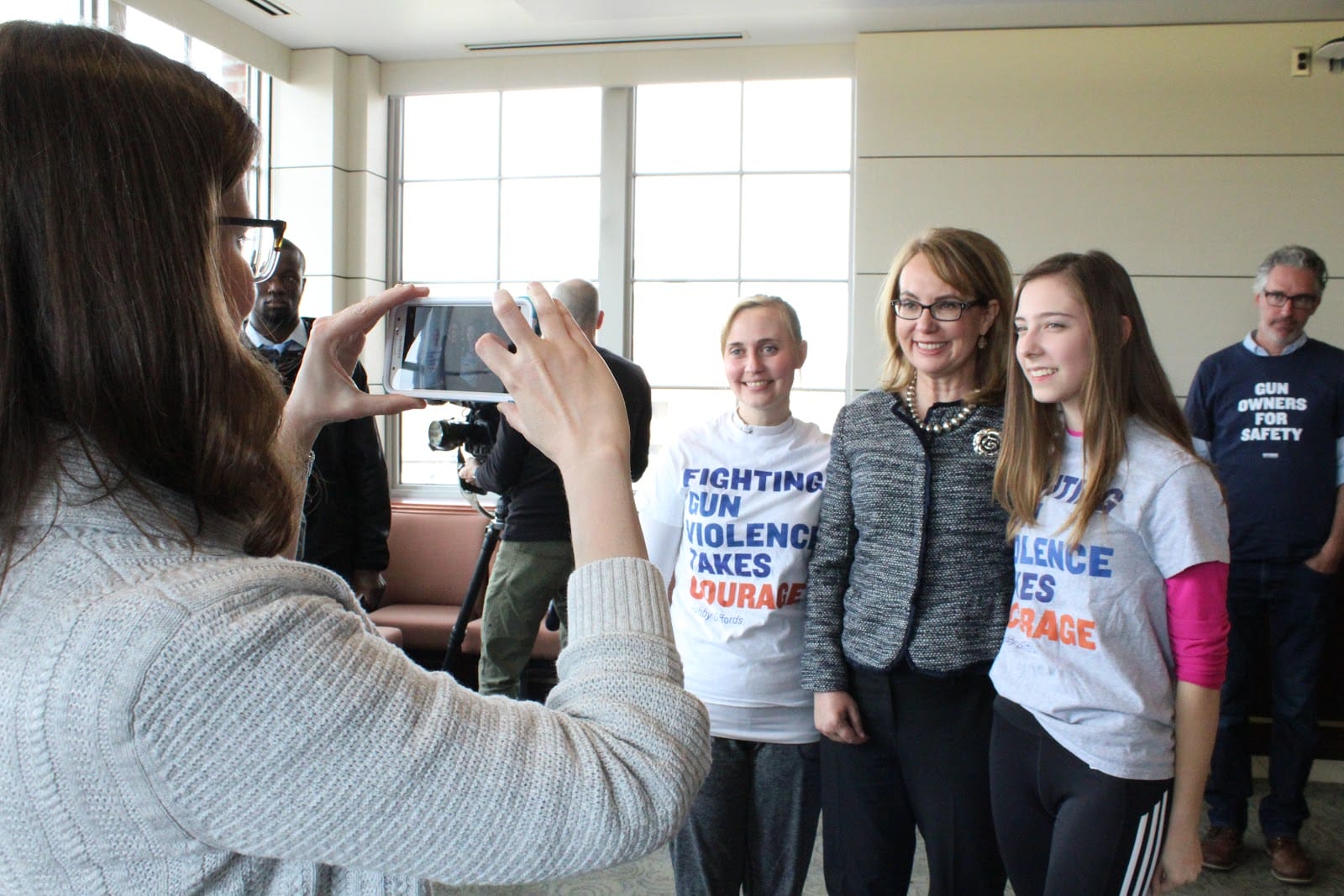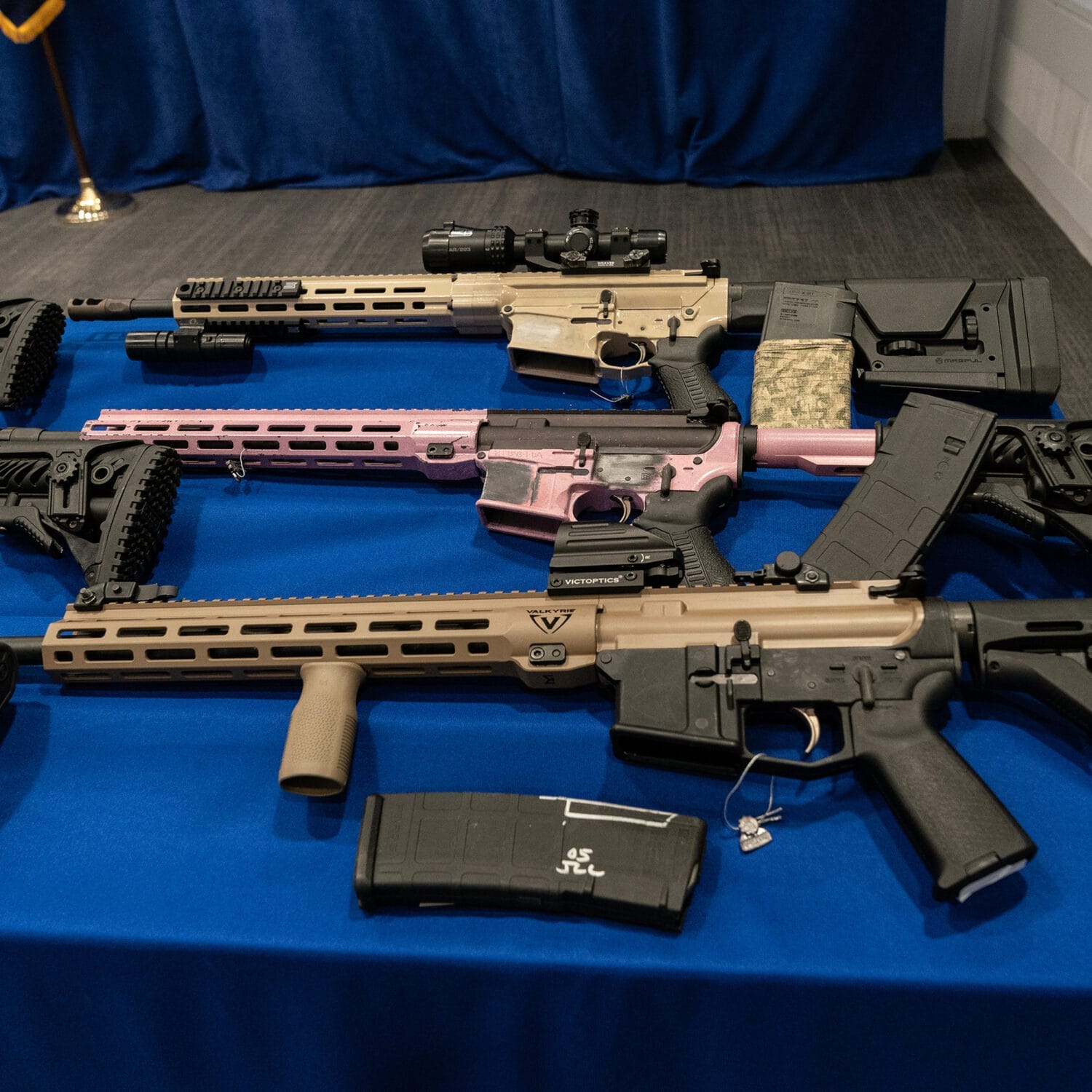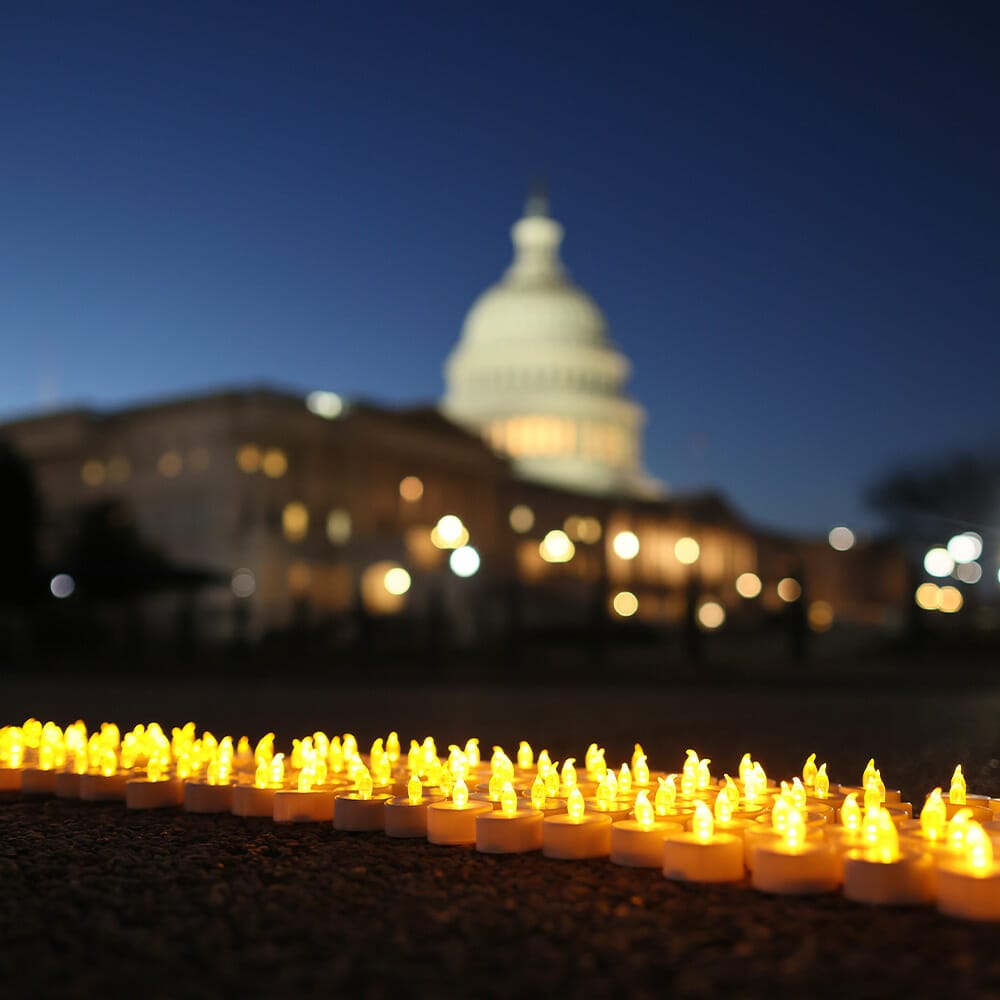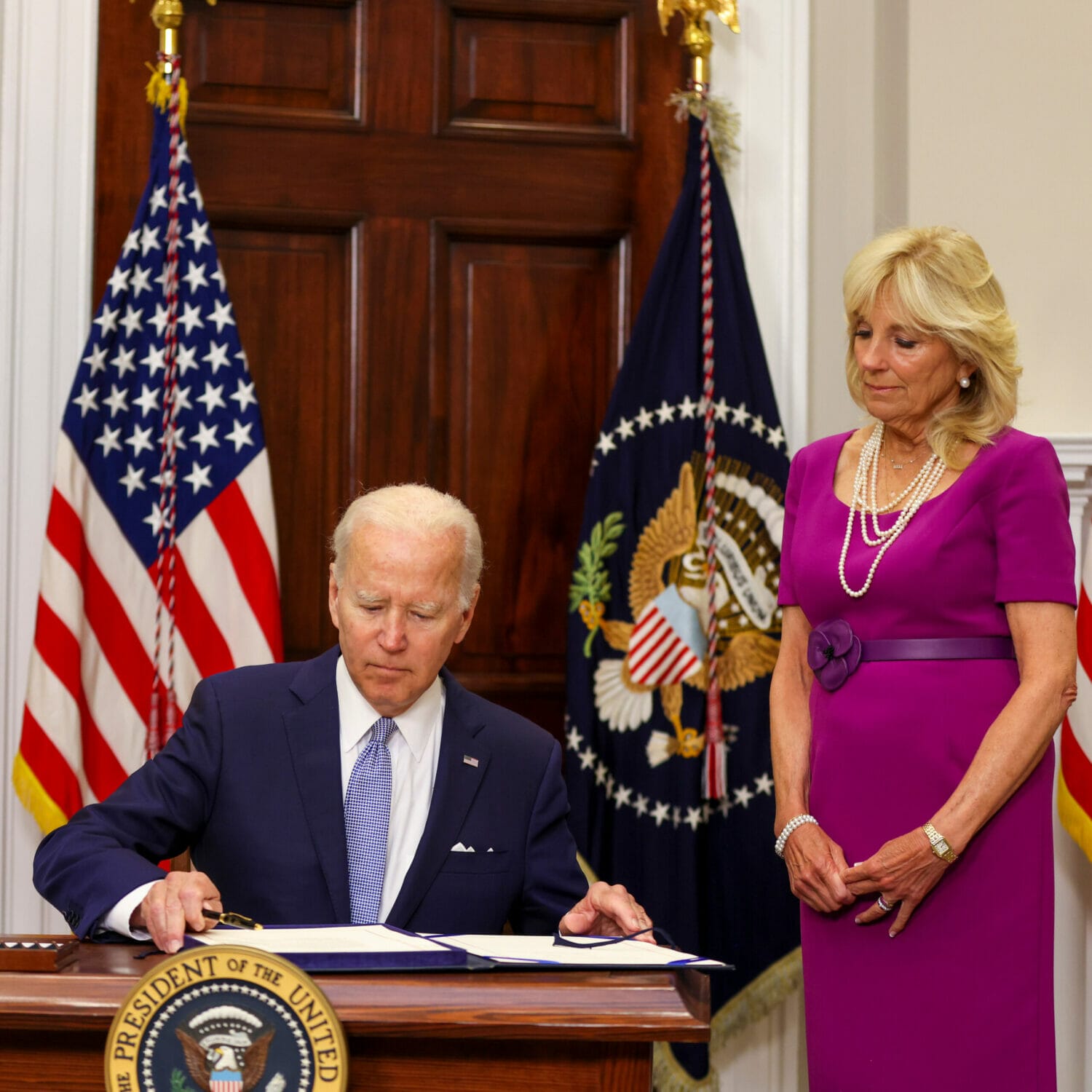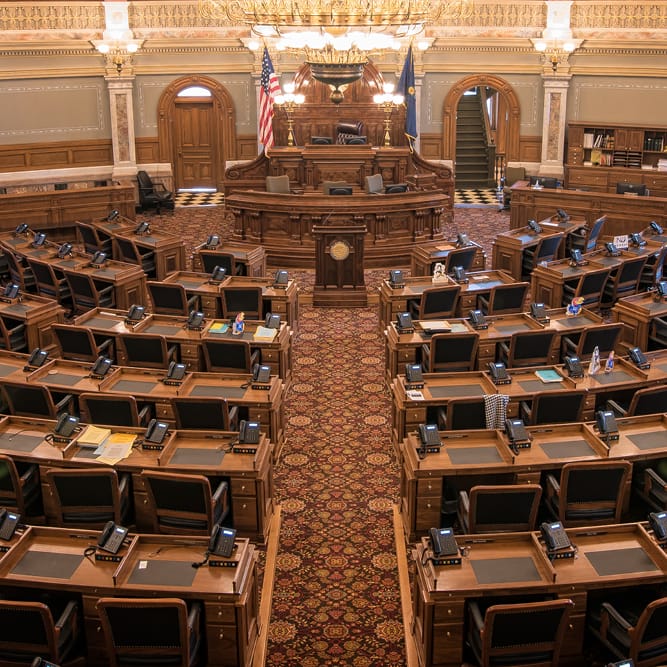
Two Years of the Bipartisan Safer Communities Act
Holding Gun Traffickers Accountable
Two years ago today, President Biden signed the Bipartisan Safer Communities Act (BSCA), the first major federal gun violence prevention law in nearly 30 years.
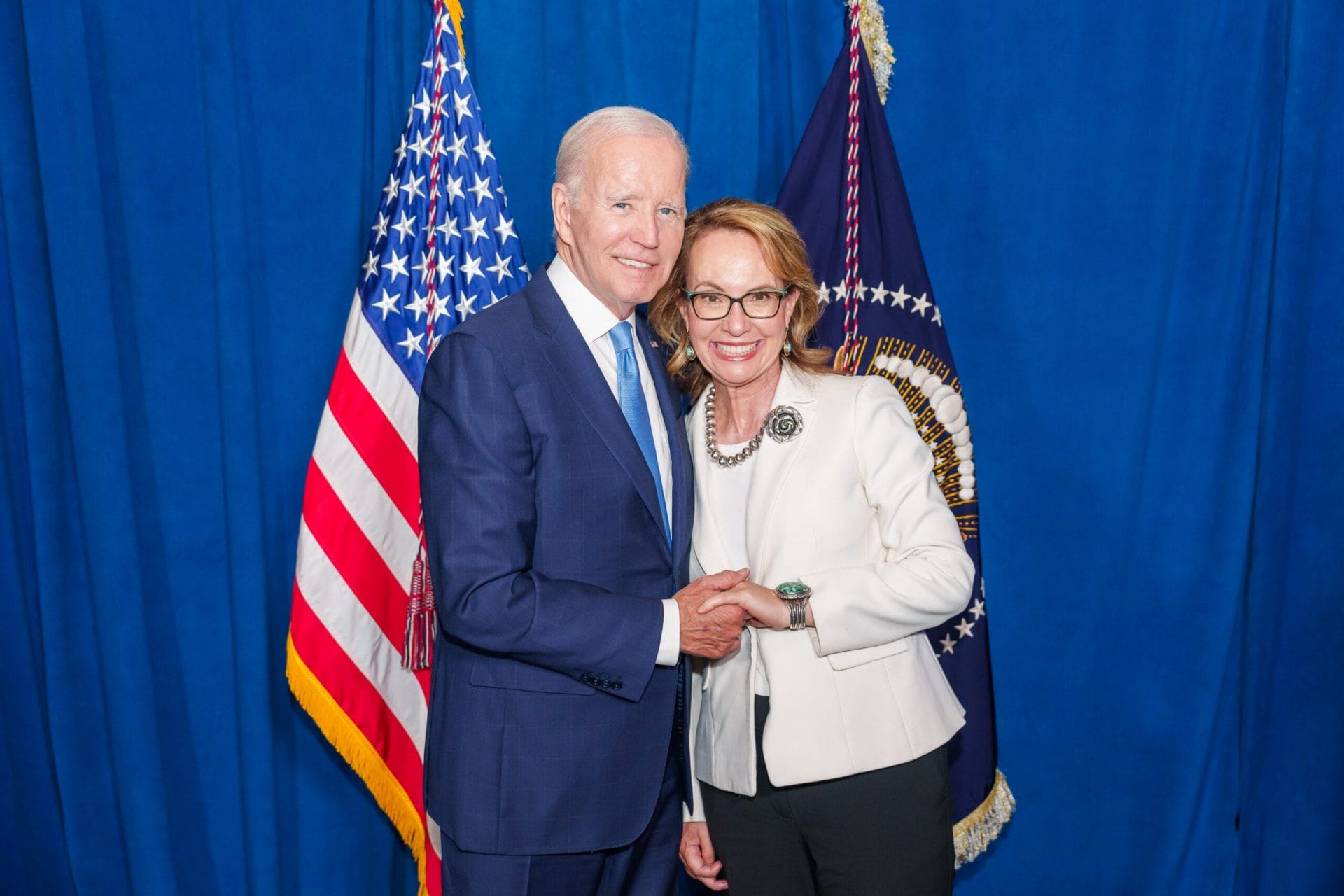
In the wake of yet another mass shooting at an elementary school—this time in Uvalde, Texas—Americans demanded action on gun safety. The gun violence prevention movement had reached its boiling point and advocates and lawmakers alike weren’t backing down without substantial progress. It was a challenge to unite folks across the political spectrum on this issue, especially when the gun lobby pulls the strings of so many lawmakers. But in a rare moment of bipartisan support, Congress passed the Bipartisan Safer Communities Act and President Biden signed it into law on June 25, 2022.
The provisions in the BSCA were wide-ranging and addressed many facets of gun violence prevention, including enhanced background checks for those under 21, funding state extreme risk laws, addressing the dating partner loophole, funding community violence intervention strategies and school-based intervention and prevention programs, and clarifying language around gun dealer licensing. But right now, we want to focus on how it helped hold gun traffickers accountable for the violence they spread.
Last year, GIFFORDS published a report about the implementation status of the BSCA one year after it became law. Now, we’re here to give an update on the enforcement of one specific aspect of the Bipartisan Safer Communities Act: gun trafficking.
Among the many measures the BSCA included, it also closed loopholes in existing federal criminal laws by penalizing firearm trafficking and straw purchasing. These new statutes have already been instrumental in holding people accountable for illegally obtaining and selling firearms and preventing these firearms from being used to perpetrate additional violence.
Specifically, the BSCA enacted 18 U.S.C. § 933 and 932. The first provision prohibits firearm transfers if possession of the gun by the recipient would constitute a felony, and the second prohibits purchasing a firearm intending to transfer it to someone who legally can’t possess it or who intends to commit a crime with it.
In the last two years, the Department of Justice has prosecuted more than 500 people under these new statutes. These prosecutions are aimed at the heart of criminal activity. For example, in June 2024, a defendant pleaded guilty to charges stemming from her trafficking 18 firearms and drugs, including fentanyl, into Brooklyn, New York, to someone she believed was a drug dealer who intended to resell at least some of those firearms. Several of the guns were purchased in Virginia and Georgia. Four co-conspirators have also pleaded guilty to trafficking firearms, including guns that were previously used in multiple shootings in New York.
The new statutes have also been used to prosecute people for trafficking firearms over the southern border, a persistent problem that fuels violence in Mexico and Central America. For example, in March 2024, the remaining five of eight members of a trafficking operation were arrested for obtaining over 100 firearms to be smuggled over the Texas border to a drug trafficking cartel. The organization bought firearms both from unlicensed dealers and federal firearm licensees using straw purchasers. One of the conspirators, a former Army major, is alleged to have sold military-grade weapons to his co-defendants.
Additionally, the provisions have been used to prosecute ghost gun traffickers. Between May 2022 and April 2023, three co-defendants, including a retired police detective, conspired to manufacture and sell what they described as “hit kits”—a handgun manufactured with a Polymer80 ghost gun kit, a threaded barrel to attach a silencer, a silencer, subsonic ammunition, and latex gloves. All three co-defendants have pleaded guilty in federal court.
Because of the persistent hard work from survivors and advocates across the country—as well as President Biden’s leadership—the BSCA has already saved lives. In this case, it enabled the Department of Justice to target criminals who fuel gun trafficking, shutting down gun violence before it can happen. The protections outlined above highlight just how important the Bipartisan Saver Communities Act is in the fight for gun safety—and why proper implementation is so important for creating safer communities.
MEDIA REQUESTS
Our experts can speak to the full spectrum of gun violence prevention issues. Have a question? Email us at media@giffords.org.
Contact